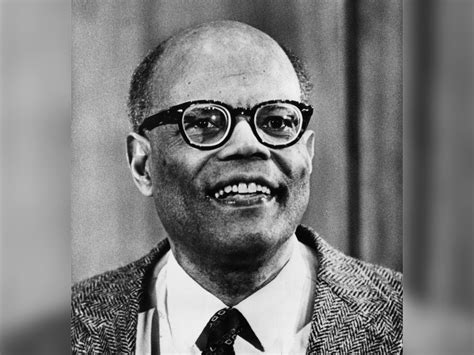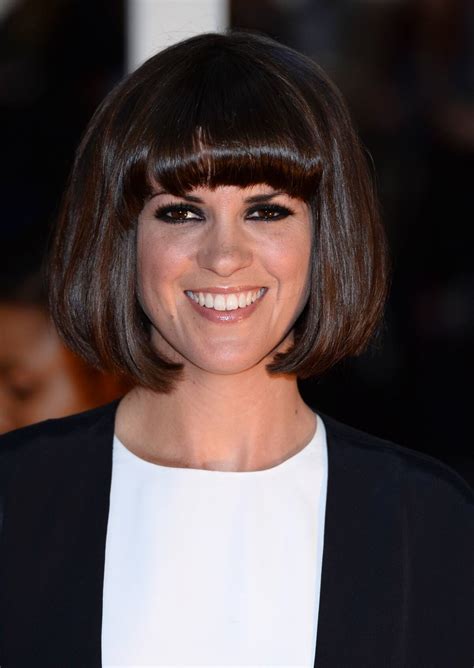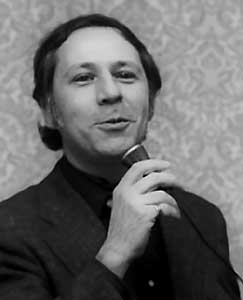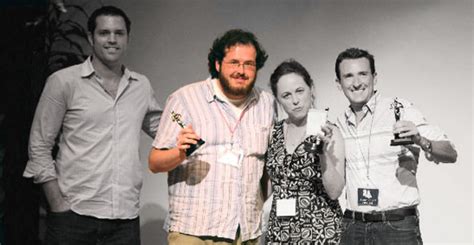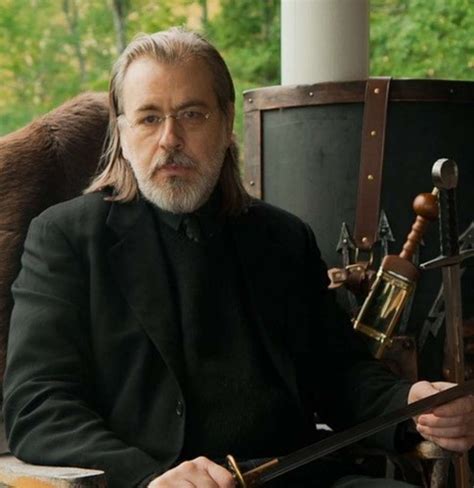A Quote by Margaret Wertheim
For ten years, I wrote regular columns about science for women's magazines, and to my knowledge I'm the only person in the world who can say that. This has no kudos in either the science-writing world or the academic world, but it's one of the most challenging things I've ever done. It's much harder to write about cosmology for a magazine like Vogue than for the New York Times, which I've also written for, because you have to imagine that on the page opposite there'll be an advertisement for eyeliner, or an article about the latest trends in skirt length.
Quote Topics
About
Academic
Advertisement
Also
Article
Because
Challenging
Columns
Cosmology
Done
Either
Ever
Eyeliner
Harder
Imagine
Imagine That
Knowledge
Latest
Latest Trends
Length
Like
Magazine
Magazines
Most
Much
New
New York
New York Times
Only
Opposite
Page
Person
Regular
Say
Science
Skirt
Ten
Ten Years
Than
Things
Times
Trends
Vogue
Which
Women
World
Write
Writing
Written
Wrote
Years
York
Related Quotes
I don't know of any science writing going on in women's magazines, unless you count medical stories about things like breast cancer. I still think there's a huge problem about how we can actively engage a wider range of women. I'm not saying women must be a separate audience - I'm just responding to the reality that the majority of people who do read science magazines are male. That's not a value judgment; it's a statistical fact.
I was living in a house in the West Village of New York and trying to be Carrie Bradshaw. I wrote a whole 5 pages about this character who wasn't going to wear high heels because it was not empowering. I've read that article 1000 times, it's so boring! I was writing really cliched women's stuff which is exactly what I didn't want to write.
I was kind of amazed because I first found out about blue boxes in an article in Esquire magazine labeled fiction. That article was the most truthful article I've ever read in my life... That article was so truthful, and it told about a mistake in the phone company that let you dial phone calls anywhere in the world. What an amazing thing to discover.
Science fiction isn’t just thinking about the world out there. It’s also thinking about how that world might be—a particularly important exercise for those who are oppressed, because if they’re going to change the world we live in, they—and all of us—have to be able to think about a world that works differently.
Science fiction isn't just thinking about the world out there. It's also thinking about how that world might be - a particularly important exercise for those who are oppressed, because if they're going to change the world we live in, they - and all of us - have to be able to think about a world that works differently.
Science fiction is the most important literature in the history of the world, because it's the history of ideas, the history of our civilization birthing itself. ...Science fiction is central to everything we've ever done, and people who make fun of science fiction writers don't know what they're talking about.
For Tommy, on that hot and empty afternoon, was in a state of mind in which grown-up people go away and write books about their whole world, and stories about what it is like to be married, and plays about the important problems of modern times. Tommy, being only ten years old, was not able to do harm on this large and handsome scale.
For myself, I am interested in science and in philosophy only because I want to learn something about the riddle of the world in which we live, and the riddle of man's knowledge of that world. And I believe that only a revival of interest in these riddles can save the sciences and philosophy from an obscurantist faith in the expert's special skill and in his personal knowledge and authority.
I would teach the world that science is the best way to understand the world and that for any set of observations, there is only one correct explanation. Also, science is value-free, as it explains the world as it is. Ethical issues arise only when science is applied to technology - from medicine to industry.
It had also been my belief since I started writing fiction that science fiction is never really about the future. When science fiction is old, you can only read it as being pretty much about the moment in which it was written. But it seemed to me that the toolkit that science fiction had given me when I started working had become the toolkit of a kind of literary naturalism that could be applied to an inherently incredible present.


